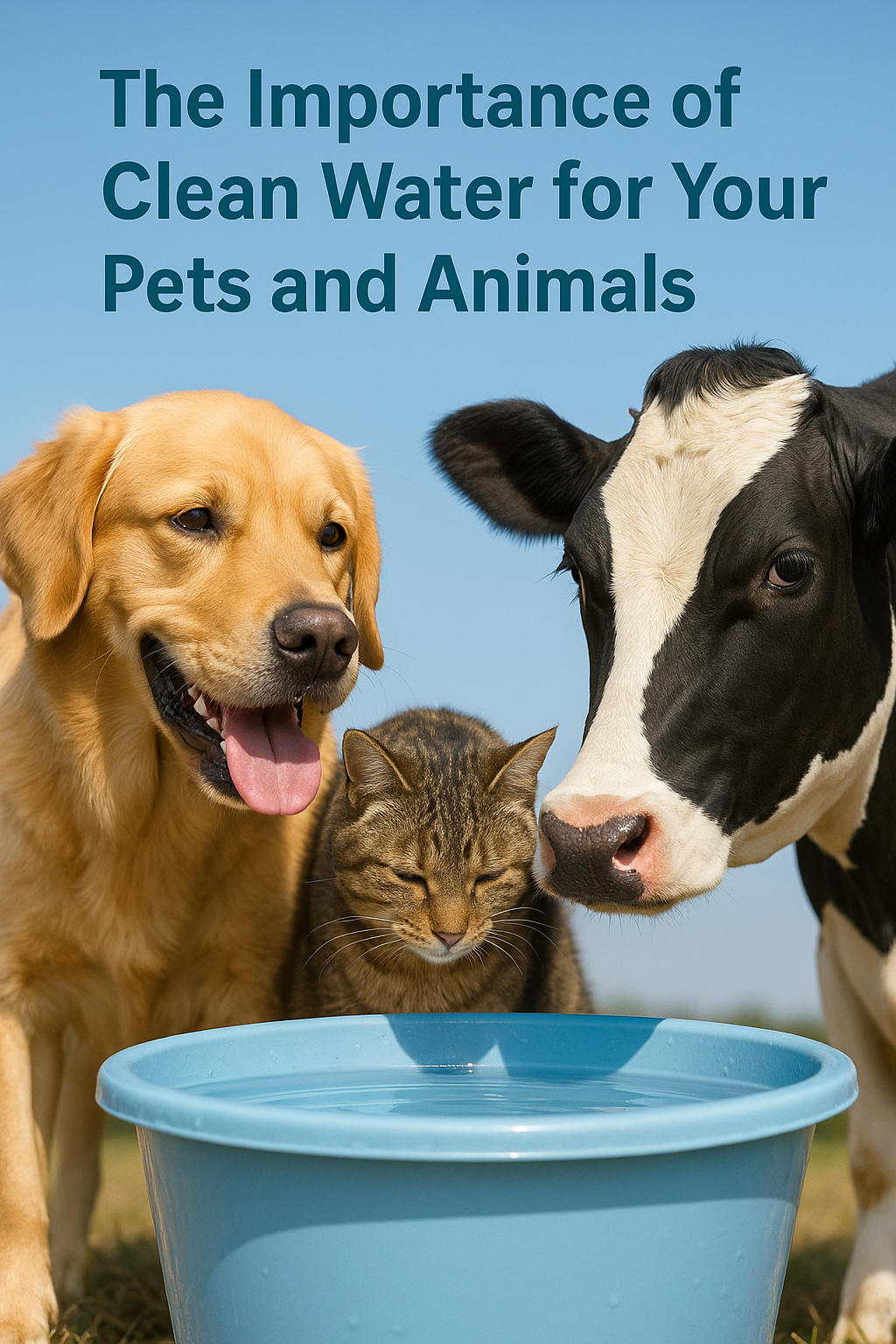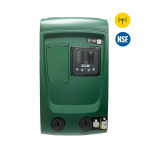
The Importance of Clean Water for Your Pets and Animals
Ensuring your pets and animals have access to clean, fresh water is one of the most fundamental aspects of responsible care. While food, shelter, and exercise often take center stage, water quality is just as vital for their health and well-being.
Why Clean Water Matters
Essential for Life and Health
Water is crucial for every bodily function in pets and livestock, including digestion, nutrient absorption, circulation, temperature regulation, and waste elimination. Dehydration can quickly lead to serious health issues, such as lethargy, organ dysfunction, and even life-threatening conditions.
Prevents Disease and Illness
Dirty or stagnant water can harbor bacteria, mold, algae, parasites, and chemical contaminants, which can cause gastrointestinal upset, poisoning, or severe infections in pets and livestock. For example, pets drinking from puddles or contaminated bowls risk exposure to harmful microbes and toxins, which can damage organs like the liver and lead to costly veterinary treatments.
Supports Productivity in Livestock
Clean water is directly linked to farm animal productivity. Contaminated water can reduce feed consumption, impair nutrient absorption, and lead to lower weight gain, decreased milk production, and reproductive issues. Healthy, hydrated animals are more efficient and profitable, supporting animal welfare and farm sustainability.
Risks of Dirty Water
- Bacterial and Parasitic Infections: Stagnant or dirty water can contain pathogens such as Giardia, leptospirosis, and harmful bacteria, leading to illnesses ranging from mild digestive upset to severe systemic infections.
- Chemical Contaminants: Tap or outdoor water sources may contain chlorine, heavy metals, fertilizers, or other pollutants harmful to pets and livestock.
- Algae and Mold Growth: Left uncleaned, water bowls and troughs can develop algae mats or mold, which not only deter animals from drinking but can also produce toxins.
Practical Tips for Providing Clean Water
- Daily Cleaning: Clean your pet’s water bowl daily with mild soap and warm water, and sanitize it weekly to prevent bacterial buildup. Stainless steel bowls are best, as they resist bacterial growth and are easy to clean.
- Fresh Water Supply: Replace water at least once daily, more often in hot weather or if the bowl becomes dirty. Automatic water dispensers and pet fountains can help keep water fresh, but require regular cleaning.
- Monitor Water Quality: Check for unusual odors, discoloration, or debris in water sources. Regularly inspect and clean livestock water troughs, and consider advanced filtration or treatment systems to remove contaminants.
- Multiple Access Points: Place several water bowls or troughs in different locations, especially for pets with mobility issues or large enclosures, to ensure easy access at all times.
- Prevent Wildlife Contamination: Limit wildlife access to livestock water sources to reduce the risk of disease transmission and contamination.
Safe, clean water is not a luxury — it’s necessary for your pets' and animals' health, happiness, and longevity. By making clean water a daily priority, you protect them from disease, support their bodily functions, and contribute to their overall quality of life. Whether you care for a single pet or a whole herd, investing time and attention in water hygiene is one of the simplest yet most impactful ways to show you care.




Validate your login